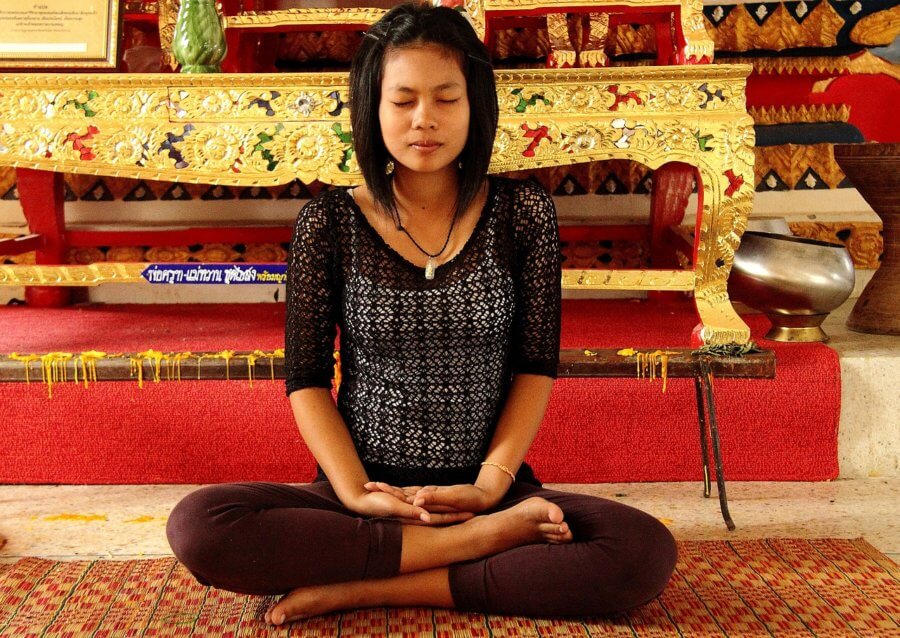Mobile apps for mindfulness and meditation
Stress continues to be one of the challenging mechanisms of responding to situations. Many people find it difficult to respond to stressful encounters. Commonly, stress is associated to situations such as threat or demand, where one has to apply the best kind of response to a particular situation they are facing.
Whatever the response, there is always an outcome, which may either be positive or negative. Digital solutions have discovered an opportunity to thrive in the currently competitive market by seeking to provide exemplary solutions to people suffering from stress.
At present, digital solutions are venturing into stress response and management market segment by influencing the development of meditation and stress-reducing mobile applications.
The mobile applications employed in this segment help people with stress and meditation by initiating various kinds of feedback including visual feedback and auditory feedback that consequently encourage healthy deep breathing as well as bringing a state of calmness to a person.
Some of the mobile applications commonly used in the healthcare sector to help reduce stress in patients and enable healthy meditation include Mindfullness Bell, Happier, The Mindfulness App, Calm, Mindbody, Happify, Buddhify and Smiling Mind.
In an effort to assess the efficacy of digital applications in meditation and reducing stress, researchers conducted a study on the mindfulness app. They considered meditators and non-meditators to perform a cross-sectional study, and stress score, which was measured prior to and after observing meditation to perform a longitudinal study.
The researchers determined that the use of mindfulness app minimized stress level significantly. Some of the hospitals recommending the use of digital applications to help combat stress and enhance meditation include NICE, King’s College Hospital and Lancashire Care NHS Foundation Trust.
Therapy is the first step to dealing with stress and learning to embrace meditation. Through the use of mobile applications, guided or unguided therapies can be considered depending on the most effective approach. For guided therapy, a stressed patient can be advised to install and use a mobile application alongside appropriate tutorials.
In the case of science-based mobile game, the patient may attempt to play a particular type of game, while referring to the game instructions and tutorials provided.
For guided therapy, the patient may be left alone to choose a preferred type of mobile application without influence.
The use of stress-managing and meditation mobile applications has in the recent times grown significantly to occupy a greater part of the available digital solutions. The figure below shows the rate of use of stress management applications as a stress management strategy in the year 2015 by selected number of users.
From the figure above, it is apparent that mobile app users considered using sounds, breathing and meditation mobile applications frequently. On the contrary, these people used Biofeedback, autogenic training and self-massage less frequently. This candidly proves the significance of meditation in managing stress. It still comes third among the 15 stress-management options available, proving that it is more effective in stress reduction.
Efficacy of digital apps in meditation & stress reduction
To help explain the effectiveness of digital solutions in reducing stress and enhancing meditation, researchers developed a flight game that could be played on android phones. The game used deep frequency breathing to boost Autonomic Nervous System balance and increase variations in heart rate.
One of the researchers, Khut, also invented a mobile app that could help relieve stress through biofeedback mechanism. The breathing sensors and heart rate were used to conceptualize the interactive sounds and halos. In the event the user’s heart rate dropped, the pitch decreased and color changed from red to green.
Stanford University researchers discovered that visual feedback was an effective way to enhance healthy deep breathing. They concluded that auditory feedback could increase subjective calmness.
Digital solutions in the form of mobile applications are currently used by tons of users from all over the world. Studies shows the actual surge in the number of stress-reducing mobile applications subscribers.
Calm, a meditation mobile application, has seen more than 8 million downloads. It is accepted by several users because of its effective ability to enhance meditation, breathing, sleeping and relaxing. The efficacy of Calm is attributed to the benefits associated with meditation which include improved communication, calm mind, better clarity, relaxation and re invigoration and proper concentration. Calm is designed with high-end features including breathing exercises, a 10 minute relaxation program and meditation timers that help mobile users unwind their mind.
Happify mobile application is effective in providing positive emotional support, mindfulness and cognitive behavioral therapy. It was primarily developed to help reduce stress. Happify proffers its users an interactive and fun gaming experience, which subsequently provides an optimistic environment for stressed patients looking for calmness. Furthermore, Happify boosts the emotional and mental health via psychological support systems and positive energy.
The efficacy of Buddhify can be confirmed in the manner in which it helps users achieve meditation. This mobile application is integrated with custom meditation programs that can be accessed for about 12 hours to positively influence the lives of users by helping them attain a state of mental and physical relief.
Healthcare providers are embracing digital solutions for many amazing reasons. Healthcare providers and therapists use Calm to help guide their patients on the best and feasible ways to meditate, breathe, relax and sleep to help reduce stress.
The 10 minute relaxation program and adeptly designed meditation timers are what makes Calm more effective and different from other healthcare mobile applications.
Happify is also welcomed by healthcare providers and therapists thanks to its gaming experience that helps in calming down emotionally-compromised patients. Despite the many meditation apps in the market, Calm still remains as the most popular meditation mobile application.
Conclusion
Meditation and mindfulness is now a common practice considered by a majority of people all over the globe. This can be attributed to increased awareness among mobile application users as well as the introduction of many meditation apps that are now offering ultimate guidance on how to achieve beneficial mindfulness and meditation.
Many people are now reaping huge from meditation apps as they can now concentrate on their work and steer clear of anxiety, which, in return, rewards them with a healthy lifestyle.
Despite meditation proving viable, there is a challenge of reopening the wounds that never got healed completely. Hence, it is advisable to meditate with moderation.
Image credit: www.pixabay.com

















